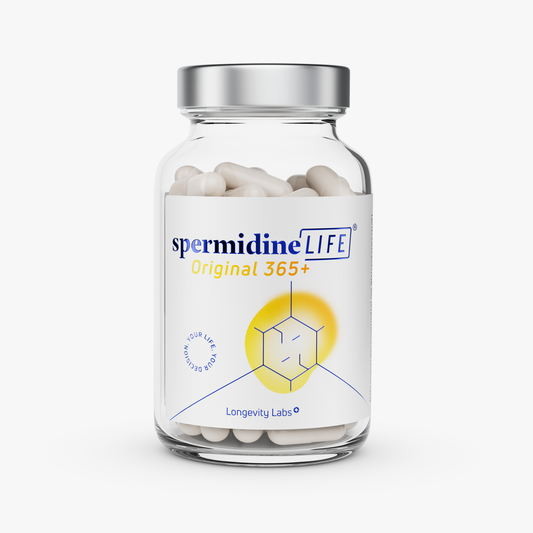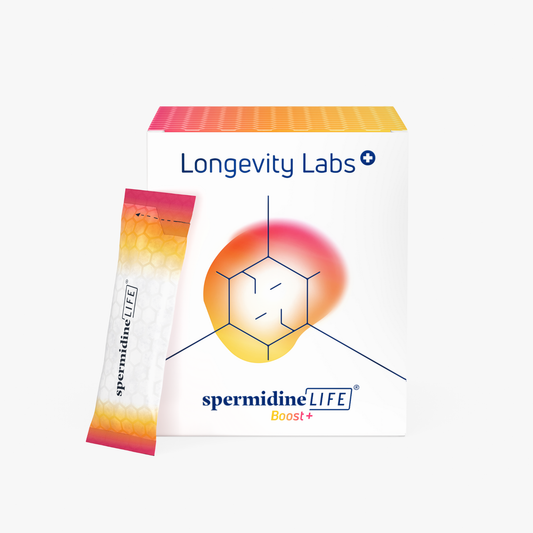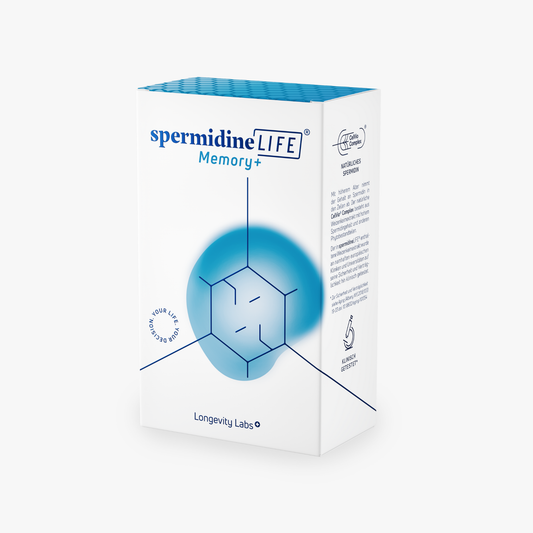
May we introduce: our advisory board Prof. Dr. Guido Kroemer, the most cited autophagy researcher in the world
Corporate, TLL LongevityLabsIn our series of portraits of our scientific advisors, we would like to introduce you today to Prof. Dr. Guido Kroemer. If the name sounds familiar, it is no coincidence. He is quoted worldwide with great pleasure on autophagy, immunology, cancer research and cell biology. And that is an understatement.
We are particularly pleased that we have succeeded in bringing Prof. Dr. Guido Kroemer on board. After all, with all due modesty, it is practically impossible to find a scientist with more expertise in the field of programmed cell death and mitochondrial research. We are all the more proud that our scientific ambition, our attitude and our vision have convinced him and that he has become a member of our advisory board to advise us strategically on the basis of highly topical findings.
Prof. Kroemer has dedicated his research to programmed cell death, so-called apoptosis, for many years. His work on the subject is considered groundbreaking. But what is apoptosis actually? Well, it is a process that can best be described as a suicide program of the cell. Apoptosis breaks down individual damaged cells in a very special way - and in such a way that neighboring cells are not damaged in the process.
A life for cell death
The focus of his research in programmed cell death is primarily the mitochondria. These are important cell organelles. Their task is to supply the cells with energy. This is also the reason why they are often called "power plants of the cells". One of Prof. Kroemer's special achievements is that he was the first to succeed in unraveling the mystery surrounding the role of these mitochondria in apoptosis.
Through his research it was recognized that mitochondria become more permeable during the degradation processes of programmed cell death ("permeabilization"). And, that this permeabilization is a crucial step in apoptosis. He thus made a significant contribution to better understanding programmed cell death and paved the way for further scientific breakthroughs. In other words, his work is the basis for understanding, recognizing and therapeutically influencing cell death.
Prof. Kroemer also gained international attention in the field of cancer research, as he made an important contribution to cell biology and cancer research with his work on the immunogenicity of cell death of cancer cells. It is no wonder that in the fields of immunology, cancer research and cell biology there is no more frequently cited scientist, at least in Europe. His other research interests include cell death and oncology as well as molecular biology, immunology and metabolism.
It all began in Tyrol
Prof. Kroemer started his world career at the University of Innsbruck, from which he graduated in 1985. He then worked as a postdoctoral researcher and habilitated in pathophysiology in 1990. In the same year, he moved to Spain and joined various institutions of the Consejo Superior de Investigaciones Científicas (CSIC) as a research group leader. In 1992, he earned another Ph.D. at the Autonomous University of Madrid, this time in molecular biology. A year later, he moved to INSERM in Villejuif, France.
Since 2010, Prof. Guido Kroemer has been a professor at the Faculty of Medicine of the University of Paris Descartes and director of the European Research Institute for Integrated Cellular Pathology there. He is also Director of the Apoptosis, Cancer and Immunity Research Unit at the Institut national de la santé et de la recherche médicale (INSERM) and Director of the Metabolomics and Cell Biology Units at the Institut Gustave Roussy. In addition, he works as a physician at the Hôpital Européen George Pompidou in Paris and holds a professorship at Karolinska Institutet (Sweden).
He currently supports more than 30 specialty editorial boards worldwide. He also promotes international knowledge transfer in the field as Editor-in-Chief of Cell Death & Disease. In total, he has published more than 550 scientific papers in his career and has been cited around 50,000 times worldwide.
Reason enough for us to quote him in this text as well:
"My credo is that the only valuable reason for doing science is a combination of intense curiosity together with a profound love for the everyday life in the laboratory. If you like the smell of mice, the noise of refrigerators, the color of medium, the shape of cells in the microscope, the flavor of unslept nights working at the bench and the excitement of performing literature searches, then you might become a scientist. For becoming a good scientist, you must unite basic qualities (intelligence and diligence) and basic defects (insatisfaction, insecurity and impatience) in the soul of an anarchist rebel who still wants to change the world and to conquer knowledge from terra incognita. And you need some social skills, because science always is a collective adventure." (Prof. Kroemer)
Not surprisingly, Prof. Kroemer has been honored with numerous awards in recent years. We, in turn, are honored to have him on board our board. And with a scientific advisory board like his, we are pleased to be able to integrate exciting new perspectives on the topic of age prevention into our own work and to continually expand our knowledge together.
Prof. Kroemer Professor has Austrian and Spanish citizenship. He is fluent in French, Italian, English and Spanish in addition to German. He is married to Laurence Zitvogel, an oncologist.
Selected Publications:
Kroemer, Guido et al. (2015) Regulation of autophagy by cytosolic acetyl coenzyme A. Molecular Cell, vol. 59 (4), pp. 522-539.
Kroemer, Guido et al. (2013) Anticancer chemotherapy-induced intratumoral recruitment and differentiation of antigen-presenting cells. Immunity, vol. 38 (4), pp. 729-741.
Senovilla, Laura; Vitale, Ilio; Martins, Isabelle; Tailler, Maximilien; Pailleret, Claire et al [.] (2012) An immunosurveillance mechanism controls cancer cell ploidy. Science, vol. 337 (6102), pp. 1678-84.
Kroemer, Guido et al. (2011) Autophagy-dependent anticancer immune responses induced by chemotherapeutic agents in mice. Science, vol. 334, pp. 1573-1577.
Green, D. R.; Galluzzi, L.; Kroemer, G. (2011) Mitochondria and the autophagy-inflammation-apoptosis axis in cell death and organismal aging. Science, vol. 333 (6046), pp. 1109-1112.
Selected awards
2000 Member of the European Molecular Biology Organization
2006 Descartes Prize as leader of the APOPTOSIS project
2007 Member of the Leopoldina
2007 Carus Prize of the Leopoldina
2007 Member of the Austrian Academy of Sciences
2007 Member of the Academia Europaea
2008 Member of the European Academy of Sciences and Arts
2008 Prix Mergier-Bourdeix of the Académie des sciences
2010 President of the European Cell Death Organization
2010 Member of the European Academy of Sciences
2012 Léopold Griffuel Prize
2017 Charles Rodolphe Brupbacher Prize for Cancer Research (jointly with Adrian Bird and Laurence Zitvogel)
2018 InBev-Baillet Latour Health Prize (jointly with Laurence Zitvogel).






